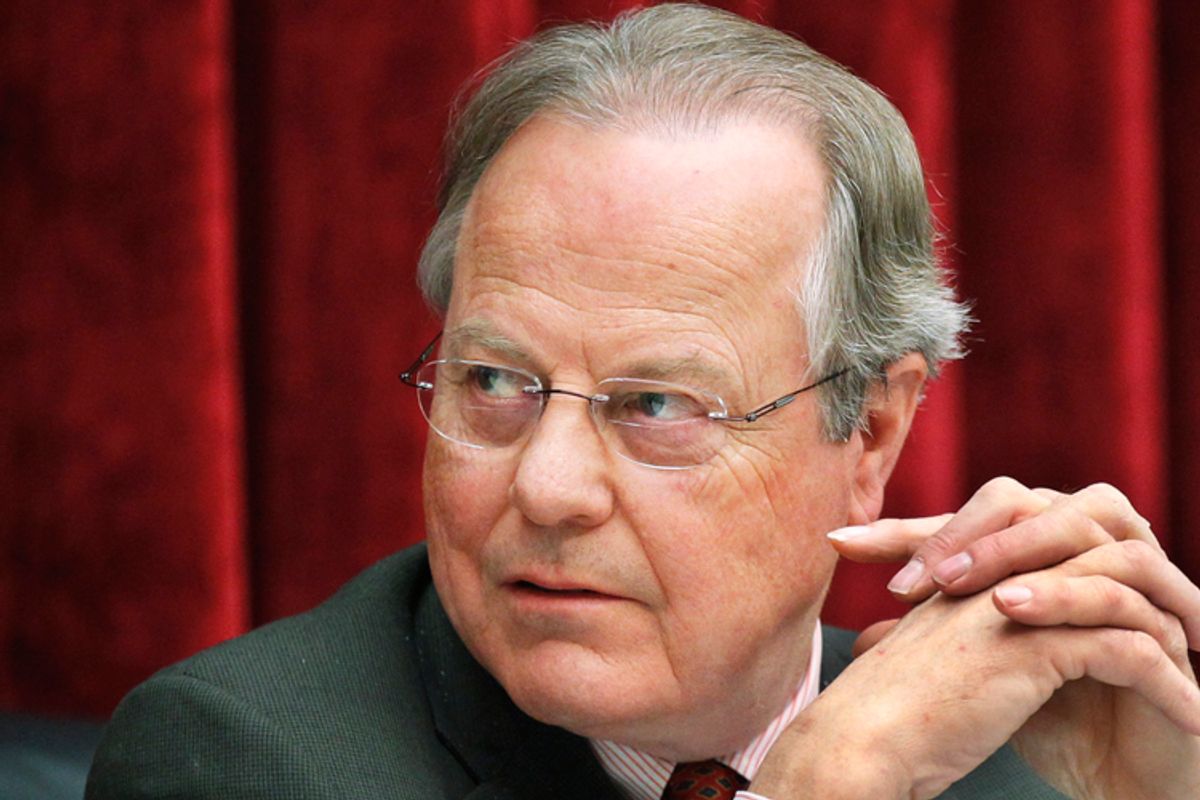House Energy and Power Subcommittee chairman Ed Whitfield announced last month that he'd be throwing a major hearing on Obama's climate plan. Today, it all went down -- well, sort of.
Whitfield hoped the day would explore "the scope of federal climate-change actions that have been tolling billions of dollars a year in spending and countless man-hours of work since the mid-1990s, reaching over $22 billion this year alone." He added, "Without this information, the public is left out of the debate, without knowing the extent of agency activity ... or what it really will accomplish."
The first sign that things weren't going exactly as planned was that, of the 13 heads of federal agencies invited, only EPA administrator Gina McCarthy and Energy Secretary Ernest Moniz attended. Whitfield was a little ticked off by this: "Eleven agencies requested to testify -- twice, I might add -- did not provide a witness or submit information about agency activity to the subcommittee. That does not send a positive message for increased public understanding of what this administration is doing on an economically consequential matter," he said.
McCarthy and Moniz shouldered the task of confronting Whitfield's attacks on their own: According to National Journal, they testified "that the science of climate change is clearly established, that their agencies have legal authority to tackle it, and that climate change is also wreaking havoc on the U.S. economy."
Both said that the new EPA regulations on carbon emissions, which are expected to take effect Friday, don't spell out the death of coal. Coal lobbyists have been insisting that rules will make it virtually impossible for new plants to open, and Whitfield, in his opening statement, said that the U.S. would become the first country in the world to ban new coal power. Jordan Davis, the policy director for the National Republican Congressional Committee, told National Journal that the strategy was to put Democrats from coal, rust and Farm Belt states in the uncomfortable position of going against their constituency if they vote against scaling back the regulations.
"The rule will provide certainty for the future of new coal moving forward, and in terms of existing facilities, coal will continue to represent a significant source of energy for decades to come," McCarthy reassured those present. In another sense, that's a disappointment, too.



Shares